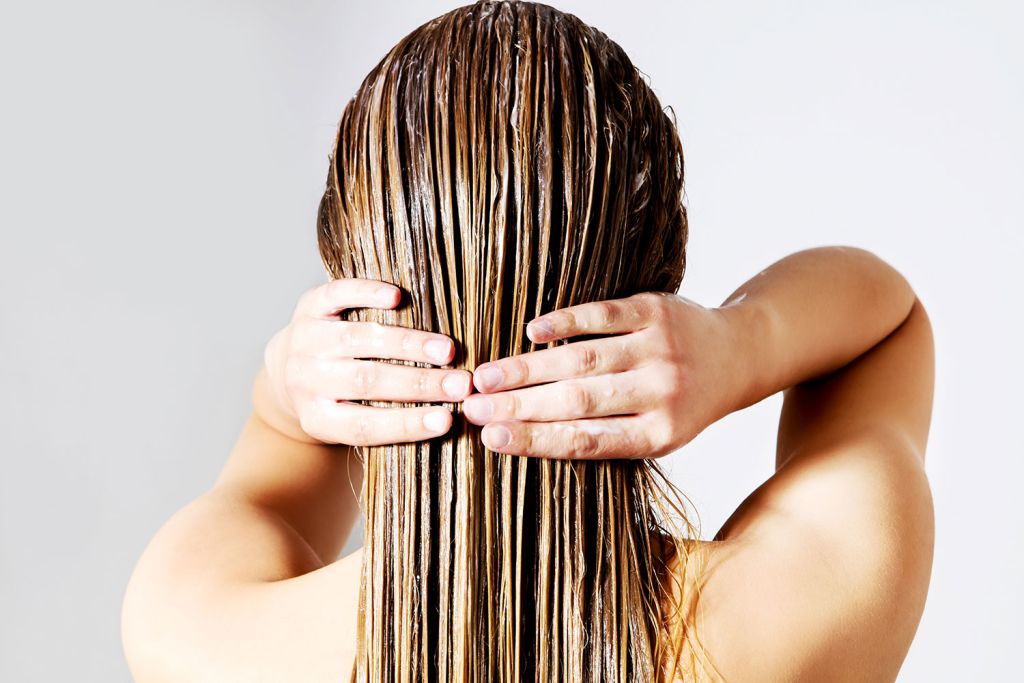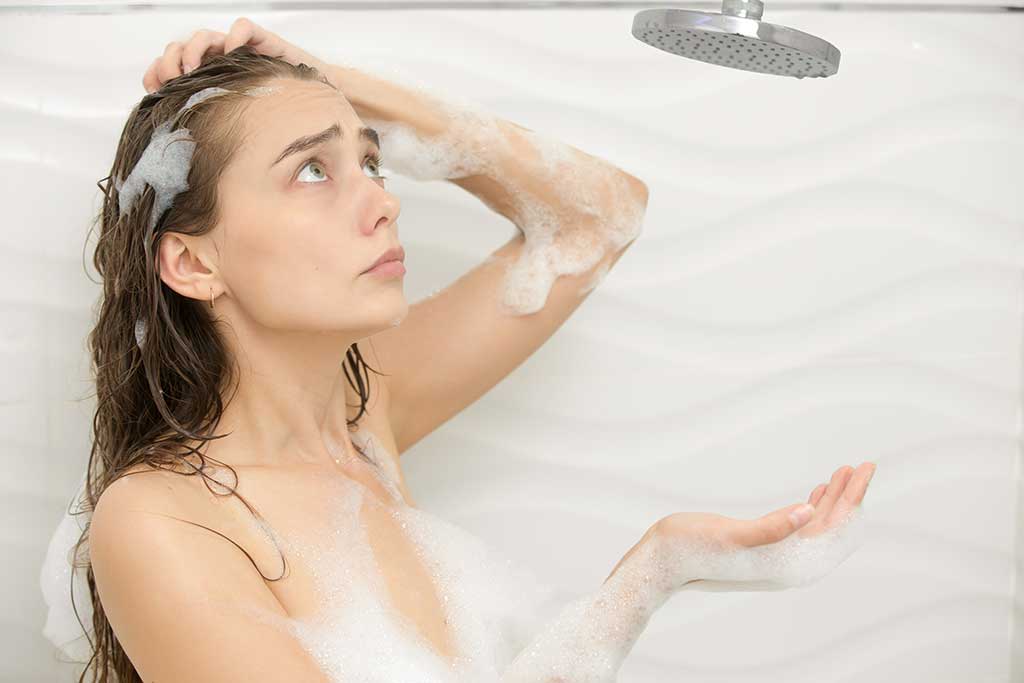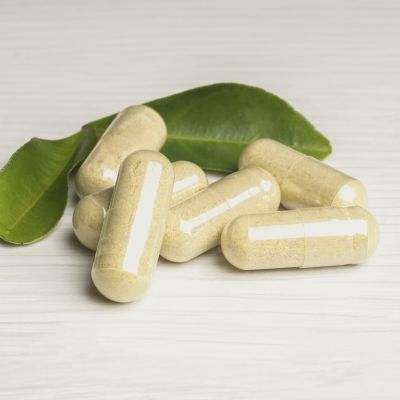You may have heard that hard water is, well, hard on your hair, but how bad is it? And what is hard water anyway?
If your hair is starting to look dull, damaged, and dry, you may have hard water hair. But don’t worry, there are a few things you can do to help protect your hair from the damaging effects of hard water.
What Is Hard Water?
When pure rainwater filters through rocks, soil, and even sand, it naturally picks up mineral salts like calcium and magnesium. These accumulated minerals aren’t generally harmful to health, but they are tough on your hair. As water accumulates and connects with these minerals, they react with ingredients in shampoos, conditioners, and other products, reducing their effectiveness.
Hard Water vs. Soft Water
While magnesium and calcium are good in moderation—and can even promote hair growth—high levels of minerals can leave heavy deposits in your hair. If you have hard water, you’ll also see that it leaves a residue on dishes, faucets, and appliances.
Soft water is created through a resin coated with positively charged sodium ions. More simply put: a softener strips materials out of the water, making it “soft water.” A home water softener can be a game changer when it comes to protecting your hair and skin.
Is Hard Water Bad For Your Hair?

Over time, washing hair with hard water can affect every strand. The mineral buildup prevents moisturizers and conditioners from doing their job. The water forms a salt when mixed with shampoo and creates a residue on the hair and scalp. This essentially coats your hair and blocks any type of conditioning treatment from doing its job. If the hair isn’t moisturized, it gets dry, grows brittle over time, and eventually breaks off. If left unchecked, your damaged hair may appear thinner.
If any type of heat treatment is applied to your hair while it’s dry and brittle, it can cause immediate damage. This means that curling irons, straighteners, and blow dryers—combined with the effects of hard water—can greatly affect your hair.
Does Hard Water Cause Hair Loss?
While hard water buildup is linked to hair loss, it’s not a direct cause. The problem starts with the minerals in the water, which will accumulate in the hair fibers. Because the conditioner can’t get to the hair, it can easily get dry and brittle. This may lead to breakage, split ends, and even hair falling out.
Some common signs your hair has hard water damage include:
- Dandruff
- Sensitive scalp
- Coarse hair
- Split ends, dry hair, or hair breakage
- Dullness
- Frizziness
- Tangles
- Brassiness or a green tint
Noticing any of these symptoms? Here are some tips for hard water hair care.
How To Protect Hair From Hard Water
Try these quick and easy remedies for hard water damage that will help revive your locks in no time.
1. Shower Head Water Filters
Tools like shower head water filters and water softeners can protect your hair by stripping the minerals and chlorine out of the water before it even touches you. They’re easy to install and can be found at most home improvement stores.
2. Clarifying Shampoos
Clarifying shampoos remove hair product buildup, oil, and additional residue from both the hair and scalp. Think of a clarifying shampoo as a deep cleaner that gives your hair a reset. Although clarifying shampoos are great for your hair, they shouldn’t be used more than once every other week.
3. Chelating Shampoos
Clarifying shampoos remove dirt, residue, oils, and surface minerals present outside the hair shaft. Chelating shampoos go one step further by taking on substances that exist below the hair’s surface. They strip the hair’s inside shaft of metals, minerals, and deposits. Depending on the products you use in your hair, chelating shampoos should be used from every other week to once a month.
4. Naturally Acidic Rinses
A hard water hair treatment in the form of an acidic rinse—like lemon and vinegar—helps remove buildup, close the cuticle to strengthen the hair shaft, and reset the chemical balance of your hair. These can easily be made at home with ingredients you probably already have. But be careful to follow an exact recipe as these acids must be diluted down to avoid scalp irritation or skin damage.
Try mixing a tablespoon of apple cider vinegar or citrus juice with three cups of purified bottled water. Work the mixture through wet hair and leave in for five minutes before rinsing.
5. Moisturizing Masks and Leave-In Conditioners
Hard water’s main effect on hair is dryness. To combat the brittleness and avoid hair loss, it’s important to get moisture to each individual hair strand as often as possible. This can be done with leave-in conditioners or moisturizing masks. Whether you have natural locks or color-treated hair, try these DIY natural hair masks with everyday kitchen essentials. For best results, do a mask or conditioner after a clarifying or chelating shampoo.
6. Purified Bottled Water
If you must shower in hard water, try rinsing your hair with a bottle of purified water before you get out. Use it as a final rinse. It’s easy on your hair and scalp and free of harsh chemicals.
7. Oils
Use a protective oil 30 minutes before you shampoo to safeguard your hair and scalp. You can even leave them in overnight. Make sure you choose the right oil for your hair type, and remember that leaving it on too long can make your hair seem greasy and heavy. Some oils to choose from include avocado, coconut, jojoba, or rosemary oil.
Frequently Asked Questions About Hard Water and Hair Loss
How do I protect my hair from hard water?
If you can, the best way to protect your hair is to install a water softener in your home. Of course, this isn’t a viable option for everyone, so following any of the seven tips we’ve provided above—like using a clarifying shampoo or making your own acidic rinse—can help lessen the effects of hard water on your hair.
How do I know if hard water is affecting my hair?
Many things affect your hair, and it’s hard to know what the culprit is. Signs of hard water damage include frizziness, dryness, tangling, split ends, breakage, and thinness. If your hair can’t hold different styles, this may also be a sign of hard water damage.
Can hard water hair damage be fixed?
Damage caused by hard water can be fixed in many ways, but it requires some commitment and effort. Install a shower head with a filter, try a chelating or clarifying shampoo, treat yourself to a leave-in mask or moisturizer, rinse with purified bottled water, apply naturally acidic rinses, or use an oil treatment.
Is hard water hair loss reversible?
Typically, hard water hair loss can be reversed. The longer the exposure to the water, the more difficult the repair, but it’s always possible. Hard water doesn’t cause permanent hair loss, and changing products or updating your water system can reverse the effects.
Take Action To Prevent Hair Loss
At HairClub, we have a variety of products to not only prevent hard water damage to your hair but also to fix it. We know that hair loss and breakage can bring a lot of complicated emotions, but we think the solutions can be simple. We want to help you love your hair with our specialized styling products, leave-in treatments, shampoos, and conditioners. Don’t accept dry, brittle hair when help is just a click away.





